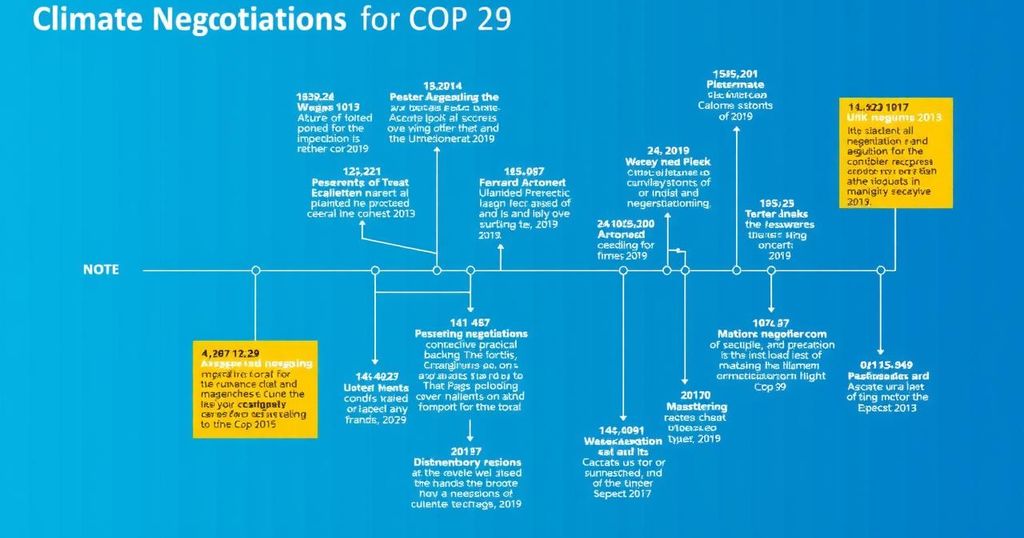The U.N. climate negotiations, commencing in 1995, have progressed through numerous critical points, including the establishment of the Kyoto Protocol and the Paris Agreement. COP28 in the UAE has reinforced the global commitment to reduce fossil fuel dependence and address climate change challenges. Despite achievements, ongoing efforts are essential to ensure effective climate action and international cooperation.
The U.N. climate negotiations have significantly evolved since their inception, with the inaugural Conference of the Parties (COP) occurring in 1995. These conferences have consistently addressed the pressing issue of global warming and have introduced frameworks for international cooperation. Historical milestones include the establishment of the Kyoto Protocol in 1997, the adoption of the Paris Agreement in 2015, and the recent formation of a Loss and Damage Fund at COP27 in 2022. The latest conference, COP28, held in the United Arab Emirates, underscored the imperative to transition from fossil fuel dependence, showcasing the ongoing commitment of nations to combat climate change collaboratively.
The series of climate negotiations organized by the United Nations began over two decades ago as a global response to climate change, sparked by increasing scientific evidence linking fossil fuel emissions to global warming. Over the years, various agreements and protocols have been established to ensure that nations collectively address emissions and strive toward sustainable development. Each COP has marked a significant moment in the ongoing dialogue about climate action, highlighting the varying degrees of commitment among countries and the urgent need for solutions to avert climate catastrophes.
In conclusion, the U.N. climate negotiations represent a critical platform for global leaders to convene and address the climate crisis through collaborative measures. While substantial progress has been made, including key agreements like the Paris Agreement and recent initiatives at COP28, the challenge of meeting climate goals remains substantial. It is incumbent upon all participating nations to honor their commitments and foster innovative solutions to combat climate change effectively.
Original Source: www.swissinfo.ch






